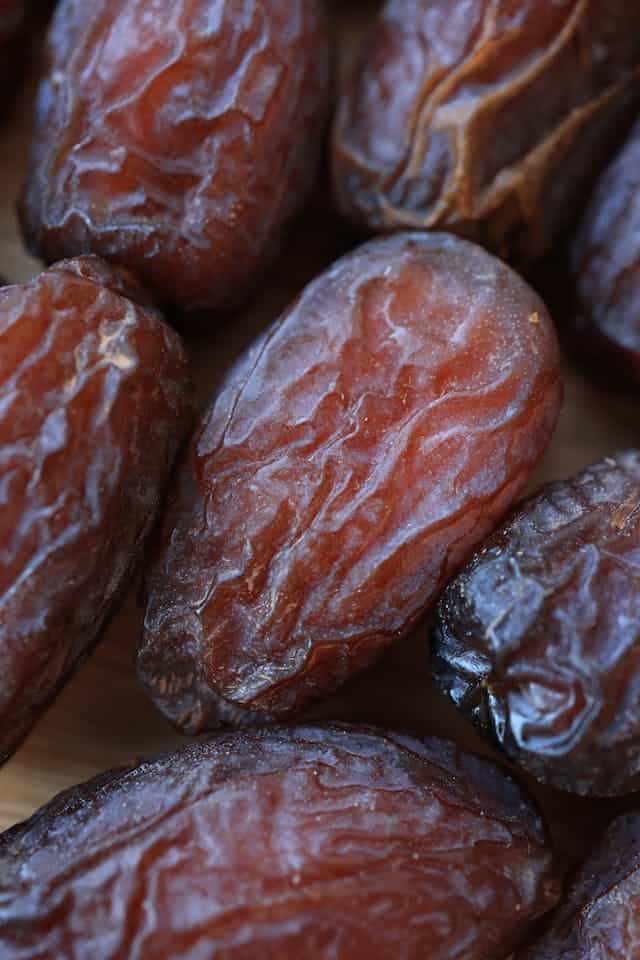Do Dates Have Lectins?
You may be wondering if dates are high or low in lectins.
Quick Answer: The quick answer is that yes, dates are low in lectins, at least if you’re talking about the fruit part.
Research showed no lectin activity in the fruit of the date. It did show lectin activity in the seed of the date, although this part is typically not eaten.
Simply put, it seems that dates are low lectin fruits that are also remarkably tasty too!

Are Dates Low In Lectins?
According to research on dates, yes, dates are low in lectins.
Research was done on the fruit (dry) and found no lectins. The seed was also tested and found some lectins, however the seeds are generally not eaten.
It’s also worth noting that fruit in general seems to be low in lectins compared to other foods that are high in lectins, such as rice or beans, that need to be cooked in order to be safe to eat. Fruits, however, can generally be safely eaten raw.
Are Dates High In Lectins?
According to research on dates, no, dates are not high in lectins.
Research done found no lectins in the fruit (dry). There were some lectins found in the seeds, however the exact amount is hard to say, since it was not measured quantitatively. That being said, generally speaking people do not eat date seeds.
It’s worth noting that fruits in general seem to be low in lectins. They are safe to eat raw, whereas other foods like beans need to be cooked in order to be safe to eat, since cooking lowers the amount of lectins.
Date Nutrition
Dates have a variety of vitamins, minerals, and antioxidants.
They are a very sweet fruit and are often used to sweeten protein bars or baked goods naturally.
Macronutrients
Dates are very sweet although they are quite low in calories if you only eat a few of them. They do vary in size, as medjool dates are quite a bit larger than deglet noor dates.
They contain mostly carbohydrates with a small amount of protein and hardly any fat.
One deglet noor date contains around 20 calories, with around 5g carbohydrates, 0.2g in protein, and 0g fat. There is about 4.5g in sugar and 0.6g in fiber.
Chopped dates may sometimes contain added sugar, which you can see in the ingredients which would obviously increase the amount of carbohydrates.
Micronutrients
Dates also do contain some amount of trace minerals, such as around 2.77mg of Calcium, 3.05mg of Magnesium, 46.6g of Potassium, and .072mg of Iron.
They also of course contain vitamins, such as around 0.012mg of Vitamin B-6.
Foods & Restaurant Dishes That Contain Dates
Dates are often eaten alone, however they also are often used to sweeten protein bars, fruit and nut bars, and baked goods.
They also can be mixed with nut butter, rolled into a ball, and stuck in the freezer in order to make a sweet and nutty snack. They also can sometimes be found in fruit and nut mixes.
Sometimes they are turned into date sugar which is then used as a sweetener for baked goods. It is generally rare to see them on a restaurant menu unless perhaps they are mixed in with a salad or in a dessert.
Resources
1. http://medicinalplants-kr.org/
2. https://fdc.nal.usda.gov/fdc-app.html#/food-details/171726/nutrients
